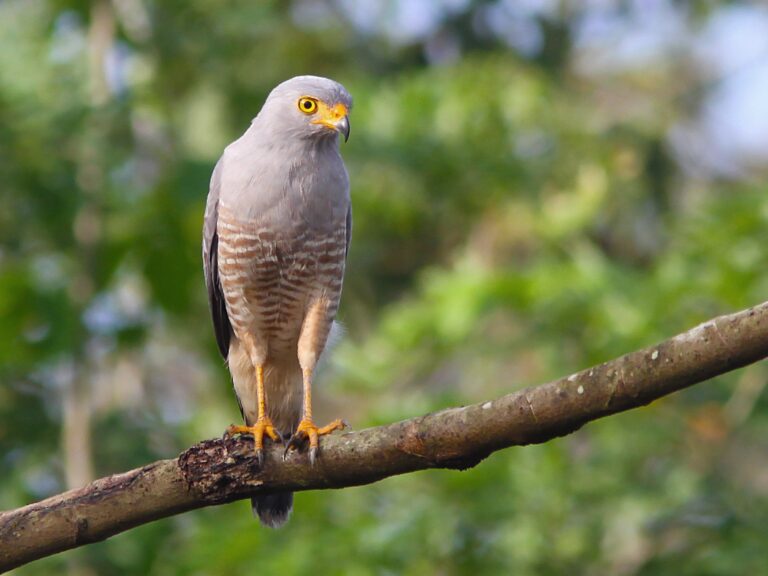Roadside Hawk Rupornis magnirostris
Taxonomy
Scientific name:
Rupornis magnirostris
Family:
Accipitridae
Genus:
Rupornis
Species:
Magnirostris
Common names:
Roadside hawk
Biology
Morphology:
The roadside hawk is a small bird of prey with rounded short wings, long legs and long tail. Their head and back parts are brown-grey. They have a mottled brown breast which is striped whitish. The tail is dark brown and has between 3 and 4 pale grey bands with a white tip. The roadside hawk is 31 to 41 cm long and weighs 250 to 300 g. Males are about 20% smaller than females, but otherwise the sexes are similar.
Reproduction:
Roadside hawks build nests from medium to high heights in trees. Nests are compact platforms built with twigs, leaves and tree bark. They lay 2 whitish eggs which are incubated in 37 days.
Diet:
Feeds mainly on amphibious, reptiles, small mammals and insects, but can sometimes hunt small birds and even fish.
Ecology
Range:
Roadside hawks are found from northern Mexico to Argentina.
Habitat:
They live in open to semi-open areas, forest borders, roadsides and plantations.
Threats
Hunting and human factor are the main risk factor for the nests and adults.
IUCN Red List: Least concern.

